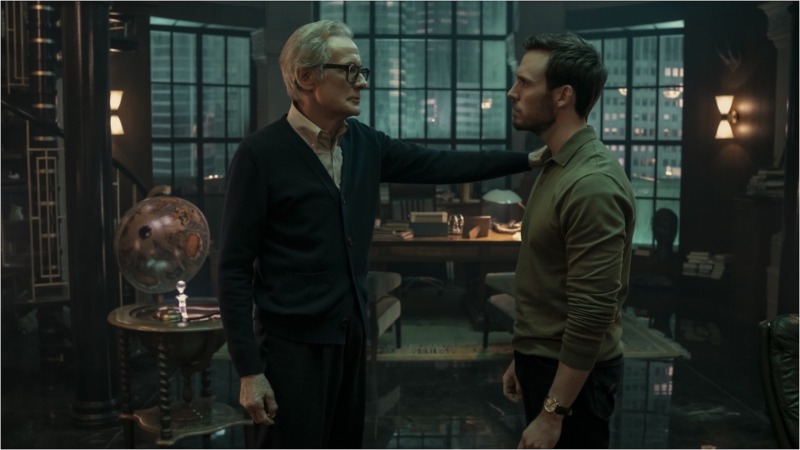Messy Timelines and Unreliable Narrators Make Harlan Coben’s Lazarus a Slog
(Photo: Prime Video)
If you’re a reader of contemporary thrillers, then you’ll likely recognize author Harlan Coben for his Myron Bolitar series, or his 2001 New York Times bestseller Tell No One (well adapted to film by French director Guillaume Canet in 2006). More likely, you’ll know Coben for his moniker on many film and television adaptations of his books, the latest being a rare, original mystery series, Harlan Coben’s Lazarus, for Prime Video.
A clear departure in tone and execution from his previous works, Lazarus was co-created/ executive-produced with collaborator Danny Brocklehurst (Fool Me Once), and the pair has gotten ambitious in the ways they tell this story of familial secrets and maybe, psychosis? Set in contemporary London, Lazarus stars a brooding Sam Claflin as Joel Lazarus, a second-generation psychologist still haunted by the unsolved murder of his twin, Sutton (Eloise Little), twenty-five years ago. The sudden news of his father’s suicide spurs Laz to rush back to the city where he’s immediately confronted with memories and unresolved issues involving Sutton, his now-deceased father, Dr. Jonathan Lazarus (Bill Nighy), his other hippy sister Jenna (Alexandra Roach), and ex-wife Bella (Karla Crome).
From the opening prologue, Lazarus makes it known that it will be breaking standard mystery/thriller formulas by inserting non-linear bursts of Laz’s past into his present, often through violent, verité-style memories from key moments in 1998. They’ll crash-cut frequently into his current dissonant meanderings with both serial killer clients and the estranged family and friends he reconnects with in London. Meant to make us question his mental state, the technique demands engaged viewing so the viewer can basically piece together that Laz is competent but emotionally dyspeptic with everyone in his orbit. In fact, you’ll be hard pressed to see him warm up towards anyone, from his coarse old BFF Seth (David Fynn) to his father’s life-long assistant Margot (Amanda Root). Exceptions are his Reiki-practicing sister, Jenna, who stayed in London to watch over their father, and his ex-wife’s awkward teen son, Aidan (Curtis Tennant), which makes Laz a real pip to follow on-screen.
Now that daddy is dead, Laz and Jenna are both confused by his out-of-character suicide. That prompts him to snoop around his father’s magnificently lavish office, where day drinking induces a startling vision of a motor-mouthed client, Cassandra Rhodes (Sianad Gregory), arriving for an appointment with his dad. Mystified by the experience, Laz does a little digging in the client files, which reveals that her case was closed out in 1999 after she was found murdered. It’s eerily similar to Sutton’s fate, a tie that ignites Laz’s obsession to find out what happened to them both, and consequently, why he’s having regular encounters with dead former clients of his father’s.
What ensues for five of the six episodes is Lazarus connecting the dots—literally, with his homegrown murder board—amongst deceased clients who speak to him and reveal clues about their dark lives as they were counseled by his father. Bodies turn up, old suspects are reexamined, and long-time friends spark suspicion. And dad even gets in on the posthumous prattling, consigned to speak cryptically from his office, father to son, about his approach to therapy and their distant, unresolved relationship. It leaves Laz and the audience to question: is all of this just regret-filled mental gymnastics on the part of a grieving son, or is this some unmoored, supernatural-infused Murder, He Wrote?
-

-

-

-

-

-

-

-

-

-

-

-

-

-

-

-

-

-

-

-

-

-

-

-

-

-

-

-

-

-

-

-

-

-

-

-

-

-

-

-








































